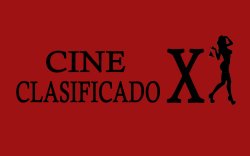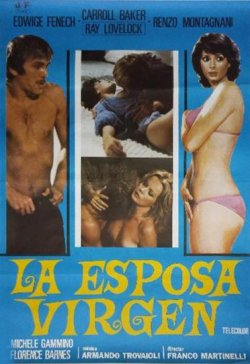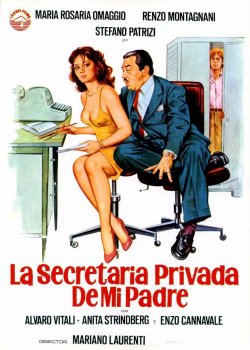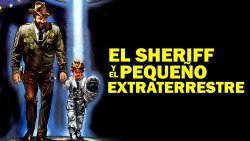 |
|
SINOPSIS
Historia de cuando Elvis, el rey del rock, se presentó una buena mañana en la Casablanca solicitando una entrevista con el Presidente Nixon...
INTÉRPRETES
MICHAEL SHANNON, KEVIN SPACEY, ALEX PETTYFER, JOHNNY KNOXVILLE, COLIN HANKS, EVAN PETERS, SKY FERREIRA, TRACY LETTS, TATE DONOVAN, ASHLEY BENSON
MÁS INFORMACIÓN DE INTERÉS
![]() CRITICAS
CRITICAS
![]() CÓMO SE HIZO
CÓMO SE HIZO
![]() VIDEO ENTREVISTAS
VIDEO ENTREVISTAS
![]() AUDIOS
AUDIOS
![]() PREMIERE
PREMIERE
{slider ![]() GALERÍA DE FOTOS}
GALERÍA DE FOTOS}
https://cineymax.es/estrenos/fichas/104-e/100535-elvis-nixon-2016#sigProId1cb71cb751
{slider ![]() PREMIOS Y FESTIVALES}
PREMIOS Y FESTIVALES}
_______________________
{slider ![]() INFORMACIÓN EXCLUSIVA}
INFORMACIÓN EXCLUSIVA}
The idea to make a feature film about the meeting between Elvis Presley and Richard Nixon was originally inspired by a portrait of an unsmiling Elvis, facing the camera and in profile, mugshot-style, that hangs in the home of producer Cassian Elwes. At a Christmas party, Elwes’ longtime friend, Joey Sagal, also an Elvis impersonator, explained the story behind artist Russell Young’s silkscreened artwork. “He told me the picture was taken when Elvis secretly went to Washington and became an undercover narcotics agent,” recalls Elwes. “He said, ‘This is the official photograph from Elvis getting the badge.’ And I go, ‘What are you talking about?’ So Joey proceeded to tell the whole story.”
Encouraged by Elwes, Sagal, who appeared as Elvis in Steve Martin’s play “Picasso at the Lapin Agile,” and his then wife, Hanala, worked together on a first draft of Elvis & Nixon. Cassian’s brother, actor and screenwriter Cary Elwes, later expanded the script into its final form.
Essential to fleshing out the story were two first-hand accounts of the meeting and the events leading up to it. The memoir Me and a Guy Named Elvis, by longtime Presley confidant Jerry Schilling, became a road map for the writers in early drafts. The handwritten notes taken during the meeting by Nixon counsel Egil “Bud” Krogh, which he later compiled into his own account, The Day Elvis Met Nixon, were incorporated into the final draft.
With Schilling offering Presley’s side of the story and Krogh representing the White House perspective, the producers knew they had the makings of a great movie. “When I read the script I was like, ‘I gotta make this movie,’” says Cassian Elwes.
In a world filled with Elvis impersonators, it would have been easy for the filmmakers to find a performer capable of imitating the King’s physical mannerisms. The challenge came in casting an actor who could get past the lip snarls and leg shakes to tap into the person beneath the persona.
Acclaimed actor Michael Shannon, Academy Award-nominated for his role in Revolutionary Road, didn’t know much about Elvis aside from his public identity when he was originally approached about the part. But producer Holly Wiersma, who had worked with Shannon on the 2006 thriller Bug, was relentless in her efforts to win him over. “I’d get stuffed animals that played Elvis songs and send them to his little girl, who was six years old,” Wiersma recalls.
Eventually Shannon came to see the role as an opportunity to reshape public perception of an iconic American figure. “I never imagined myself playing Elvis in a million years,” Shannon says. “But once I started working on the part, I realized he was much more complicated than he typically gets credit for. Unfortunately, impersonators have turned Elvis into some sort of cartoonish caricature. In fact, he was a very intelligent, complicated man.”
To get a better understanding of the man behind the aviator shades, Shannon visited Graceland and Memphis’ legendary Sun Studios, where Presley launched his recording career. He also traveled to the humble home of Presley’s youth. “The thing that really blew my mind was when I went to Lauderdale Courts, the subsidized housing project in Memphis where Elvis lived when he was in high school. They preserved this tiny apartment where he lived with his parents, and you can walk into Elvis’ bedroom. I stood in that room imagining him as a teenager sitting on his bed, looking out the window and dreaming about what he wanted to do with his life. That really stuck with me.”
Shannon was also determined to capture the nuances of Presley’s distinctive speaking voice. “Jerry gave me an interview from this movie Elvis on Tour,” he says. “There were only about 30 seconds of Elvis talking, just two or three lines, but I listened to it constantly for the voice. One of the most intimidating things for me was that nobody really ever talked like Elvis. It’s not just a southern accent. I’d never heard an accent like it in my life. So on set I’d either be listening to my CD or thinking about Elvis.”
Kevin Spacey, who has twice been Emmy-nominated for his role as fictional president Frank Underwood on the Netflix drama “House of Cards,” was the filmmakers’ first choice to portray the real-life 37th president of the United States. “It just so happened that the five days we needed Kevin to film fit perfectly into his schedule,” says Cassian Elwes. So the two-time Academy Award winner hit the ground running. “Kevin won the Golden Globe for ‘House of Cards’ on Sunday night in Los Angeles, did four interviews backstage, arrived in Louisiana at 3:30 in the morning and went in front of the camera at nine o’clock doing an absolutely perfect Nixon,” he says.
For Spacey, a longtime political junkie who recently narrated and executive produced the “Race to the White House” documentary series for CNN, the allure of re-enacting the Elvis-Nixon summit proved irresistible. “First of all, it’s a hilarious story,” he says. “And I couldn’t turn down the chance to work with Michael Shannon. He’s a great American stage actor, and he became so Elvis-like that we had a great time shooting.”
Spacey prepared himself by taking a deep dive into Nixon’s behind-the-scenes persona before filming began. “I listened to hours and hours of recordings of Nixon’s phone conversations and private meetings in the White House,” Spacey says. “I was stunned by Nixon’s paranoia about people on the outside trying to destroy him. He had a tremendous distrust of the press and lots of enemies. It was kind of remarkable how grumpy he was as a person, and Nixon’s use of foul language was shocking. You just could not believe the kinds of things he said.”
In addition to studying Nixon’s vocal mannerisms, the actor also took pains to incorporate the president’s body language into his performance. “If you look at private photographs of Nixon, he’s sort of caved in and hunched,” says Spacey. “The man was not comfortable in his own skin; I tried to embody the essence of that awkwardness.”
According to Johnson, Spacey’s meticulous preparation allowed him to develop the character beyond mere mimicry. “Kevin does really thorough character research: what was Nixon like at this moment in his life, where is he coming from, what does he want? But we wanted Kevin to play the scenes for their comic and dramatic value and not lean on prosthetics or his incredible gift for imitation.”
Shannon and Spacey tap into the surprising connection their characters forge during their brief encounter in the Oval Office. “Nixon was a good manipulator and Elvis had a very endearing way of getting what he wanted as well,” Spacey says. “You might imagine these two figures had reasons to be suspicious of each other, but over the period of time they spend together, Elvis and Nixon begin to realize they come from similar backgrounds and have very similar views about the world. At least in our version of events, Elvis and Nixon really enjoy each other’s company and I think that’s half the fun of this movie — watching how their relationship develops.”
Spacey stayed in the Nixon zone throughout filming. “Kevin had this little monitor in front of him on set, and in between takes he’d watch old footage of Nixon,” says Johnson. “He absorbed the president’s physicality, the way Nixon moved, the hand gestures and the vocalizing.”
While outgoing Spacey and brooding Shannon brought contrasting styles to their performances, the pair generated natural chemistry in the fictional Oval Office. “Kevin has a quirky sense of humor and so do I,” Shannon explains. “We meshed well. About halfway through his week of shooting, Kevin tapped me on the shoulder and said, ‘This movie’s going to be like Dr. Strangelove.’ I said, ‘Oh, that’s really funny.’ And he asked me why, and I said, ‘Well, Elvis’ favorite movie was Dr. Strangelove.’ So what’s more ideal than making a movie about Elvis that hopefully is in the style of his favorite movie?”
After being approached by Wiersma to direct, Johnson launched herself into the project fueled by a genuine love of the story and a strong rapport with Shannon, whom she had directed in the 2012 drama Return. Although she felt a strong connection with the characters in the script, she had no idea how much she would end up interacting with their real-life counterparts. “It was surreal to have historical figures on set while you direct actors representing fictional version of those characters,” says Johnson.
“When we shot the scenes in the Oval Office, Jerry Schilling decided to call up the real Bud Krogh and invite him to our set,” says Johnson. “So we had the fictional Jerry Schilling running around over here, and the fictional Bud Krogh over there, and then Bud and Jerry are off camera talking to each other. I’m standing there directing these fictional dudes and right behind are the real dudes. That night we went to a bar with Cary Elwes and all of a sudden Bud Krogh starts doing scenes from The Princess Bride. Then Johnny Knoxville lit Alex Pettyfer’s foot on fire. I was like, ‘Okay, this has been the most surreal day of my life.’”
While Elvis and Nixon command center stage, the movie includes a colorful array of real-life supporting characters. Jerry Schilling, the dominant member of Presley’s entourage, had final approval over the casting of his character. He submitted five names for consideration, including 25-year-old Alex Pettyfer. Once Wiersma offered him the job, Pettyfer spent as much time as he could with his real-life counterpart.
“Alex is a very smart actor,” Schilling says. “If you look at pictures of me from 44 years ago, he has got my body language, and he’s also got my attitude,” Schilling says. “He probably knows me from back then better than I do.”
During his sit-downs with Schilling, Pettyfer learned a lot about Presley’s private side. “Jerry talked to me about how people put so much emphasis on the Elvis exterior but don’t really get the interior aspects — his mind and his heart,” says the young British actor, who has starred in films including Magic Mike and I Am Number Four. “So playing Jerry, I tried to make sure I didn’t get too caught up in the impersonation.”
With actor and Pulitzer Prize-winning playwright Tracy Letts (“August: Osage County”) in place as drug-enforcement official John Findlay, producer Wiersma cast several supporting players just days before shooting began in Louisiana on January 12, 2015. Singer-actress Sky Ferreira signed on to play Schilling’s fiancée, Charlotte, after she attended a Christmas party hosted by Wiersma. Johnny Knoxville agreed to play “Memphis Mafia” entourage member Sonny just three days before filming began. And Colin Hanks landed the role of Nixon aide Egil “Bud” Krogh in early January, after Wiersma saw him in action while binge-watching the TV series “Fargo” on New Year’s Eve.
Unlike the real Bud Krogh, who grew up idolizing Presley, Hanks gave little thought to the King during his Hollywood childhood. “I was born the year he died,” says the actor, a music lover who directed the documentary All Things Must Pass: The Rise and Fall of Tower Records. “There was not a lot of Elvis played in my household growing up. I knew a couple of his songs but ultimately I thought of Elvis as a man in a white suit with a large collar. What really drew me to the project was my enjoyment of the ‘What if?’ aspect: ‘What if Elvis and Nixon talked about this? What if they talked about that?’ And I enjoyed the way the script played with the concepts of how this meeting came to be.”
Working side-by-side with Krogh is special assistant to the president Dwight Chapin, portrayed by Evan Peters. Best known for his roles in “American Horror Story” and X-Men: Days of Future Past, Peters jokes that he approached his character from the outside in. “Chapin has amazing hair, so that’s one reason I wanted to play him,” he laughs.
Peters grew up listening to Presley’s music but hadn’t known much about the King’s off-stage persona until he received the Elvis &Nixon screenplay. “It was great to be part of this movie because it’s got silliness, but everything is played very straight and dry. To me, that makes it even funnier.”
If audiences find it hard to believe that Elvis Presley showed up at the White House demanding to meet with the president, they’re not alone. Nixon counsel Egil “Bud” Krogh remembers receiving a handwritten note on American Airlines stationary. “It read: ‘Dear Mr. President: My name is Elvis Presley. I’m a great admirer …’ and it goes on about how he’d like to help the country out by being made a federal agent-at-large.” Krogh recalls. “I figured, ‘This can’t be for real. Chapin’s putting me on. This must be a joke.”
In fact, as chronicled in the film, Elvis was dead serious — and so was his gift for Nixon. Krogh remembers what happened after Presley and his entourage arrived. “I got a call from the head of the Secret Service detail who told me, ‘Bud, we’ve got a little problem here: Elvis brought a gun with him.’”
Once he’d been cleared, Presley presented the president with a .45 Colt automatic pistol from World War II, which now resides in the permanent collection at the Nixon Library in Yorba Linda, California. For Krogh, the entire experience is permanently emblazoned in his memory. “I was one of Elvis’ biggest fans in the 1950s,” he says. “I never went on a date without his music, so when Elvis came into my office and we shook hands, my hand was ice cold. I then had the privilege of walking Elvis from the Roosevelt Room into the Oval Office.”
As technical advisor on Elvis & Nixon, Krogh filled the filmmakers in on the particulars of the gun gift as well as many other details dramatized on screen. In return, Hanks worked hard to capture one of the strangest days in Krogh’s life. “Colin did a spectacular job playing me,” Krogh says. “He brought the utmost integrity to his performance and it’s really been fun to watch.”
To complement Krogh’s eyewitness account of the meeting, Jerry Schilling shared first-hand insights into Presley and his rituals, drawing on 23 years of experience as the King’s right-hand man. “Elvis was just a poor boy from Tupelo, Mississippi, who moved to Memphis as a teenager,” recalls Schilling, who was 12 years old in 1954 when he met Presley during a pick-up football game a few days after the 19-year-old singer recorded his first single “That’s All Right.” “He was pretty much an outcast, but even then Elvis had this James Dean attitude. He was cool before he had all the credentials to be cool.”
Schilling also provided screenwriter Cary Elwes with telling details about the whirlwind weekend during which the pair traveled to Washington D.C. “I got the call in the middle of the night,” recalls Schilling, a longtime member of Presley’s entourage, who had left Graceland and moved to Los Angeles to work as a film editor at Paramount Pictures. “Elvis said, ‘I need you to pick me up at the airport and I don’t want anybody in the world to know where I am.’”
According to Schilling, Elvis hadn’t told his wife Priscilla, his father or his longtime manager Colonel Tom Parker where he was. “For two and a half days I was in control of Elvis’ life, making arrangements to get him into the White House. Talk about having a big responsibility!”
With Schilling at his side, Presley arrived the next morning in Washington and registered at a hotel under the assumed name of Mr. Cougar, an inside joke between the old friends. “Elvis and I did karate pretty religiously and we had karate names,” Schilling explains. “Elvis was Mr. Tiger and my karate name was Mr. Cougar.’”
“It was great having Jerry’s input about what was plausible,” says director Johnson, who formed a deep friendship with Schilling. “We could ask him, ‘Would Elvis be wearing this outfit when that happened?’ Michael especially liked having Jerry around because he could always ask him, ‘Would Elvis do that?’ But Jerry’s role went way beyond that. He’s a man of enormous depth and integrity and was a great collaborator for all of us.”
Johnny Knoxville also picked Schilling’s brain about the relationship between Presley and his character, Sonny. “Jerry and I went out for drinks on the Sunday night before we started shooting,” Knoxville recalls. “I grew up in Tennessee in a huge Elvis household, so I quizzed Jerry about Sonny and also about Elvis. Jerry was a big help with this role because he was really there.”
For those who know Presley as an entertainer, the singer’s private obsessions as dramatized in Elvis & Nixon may come as a surprise. “Elvis had sheriff’s badges from Tennessee, Nevada and Colorado,” Schilling says. “We all had the right to carry concealed weapons because Elvis had death threats from time to time. Bizarre as it may seem, the guns made sense.”
The movie also touches on Presley’s spiritual curiosity. “One reason I loved being around Elvis is that he was a seeker of knowledge, whether it was astrology, numerology, Yogananda or Indian philosophy. I was happy this movie included some of those elements.”
Elvis & Nixon delights in the truth-is-stranger-than-fiction bond forged by two very different, iconic Americans. The story also offers a rare perspective of the Elvis mystique as experienced by his lifelong friends. “My number one hope for the movie is that it inspires people to take another look at Elvis,” says Shannon. “I also think it’s a great story about someone who has everything but can’t just relax and enjoy it. Elvis had this profound concern for other people and for the world. He feels like he has to do something about it and I think that’s always a good story.”
In terms of sheer entertainment, Cassian Elwes is confident audiences will be knocked out by the virtuoso performances and on-screen rapport of the men who inhabit its title roles. “Michael Shannon is one of the best actors working at the moment,” says the producer. “Seeing Kevin Spacey go toe-to-toe with him is like watching one of the greatest boxing matches of all time.”
Adds Johnson, “I love the way the story was written to acknowledge the absurd clash of two worlds, but it also has something to say about the context of the U.S. in 1970 and the way the two such powerful men are both terrified of the counterculture.”
Presley confidant Schilling knows moviegoers around the globe will enjoy the film, but he has one big concern. “Elvis is big in Japan, his biggest market is England and he’s huge in Germany, so I know his fans all over the world will have fun,” he says. “If Elvis is looking down from above, I hope he’s happy with this film,” Schilling laughs. “Otherwise I’m in trouble!”
{/sliders}












